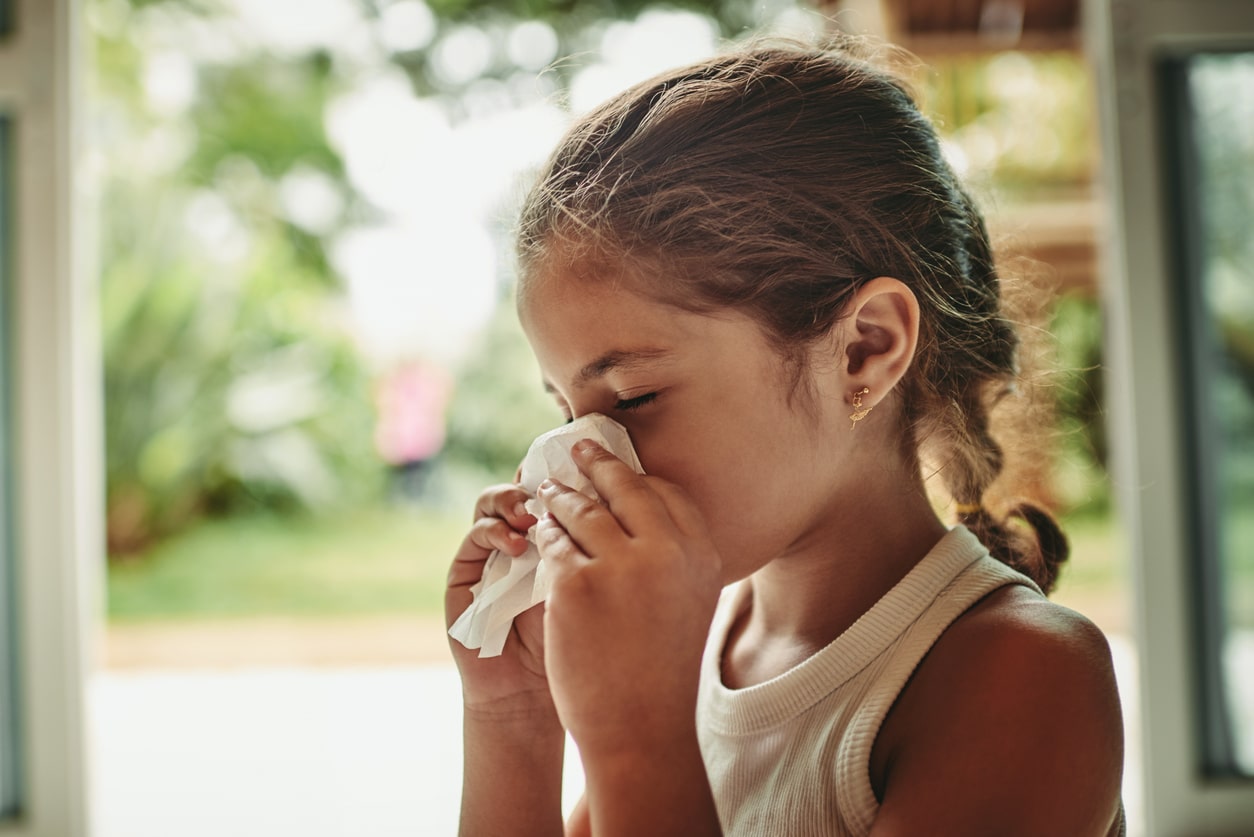The Allergic March, also known as the Atopic March, refers to the natural progression of an allergy over time, typically starting in infancy or childhood and developing into adulthood. The Allergic March tends to begin with a small symptom like dry skin and develop into allergic rhinitis or asthma by adulthood. Common steps within this process include:
- Dry skin (beginning at birth)
- Eczema (first few weeks of life)
- Food allergies (first few months or years of life)
- Rhinitis/Nasal allergies (after three years)
- Asthma (first few months to years of life)
Why Does the Allergic March Occur?

While many of the stages of the Allergic March may seem separate from each other, the theory behind the Allergic March states that they are related in the following way:
- When an infant is born with dry skin, they are at a significant risk of developing eczema.
- Eczema causes the skin barrier, normally in charge of protecting you from injury and infection, to crack.
- A cracked skin barrier allows substances to move into the body through the outer layer of skin.
- When food enters through the open or cracked skin, the immune system may overact, leading to food allergies.
- Viral infections from a poor immune system may result in wheezing, nasal allergies and asthma.
Can You Prevent the Allergic March?
One study on the Allergic March found that it is caused by multiple pathways, including “allergen exposure, environmental pollutants, skin barrier dysfunction, type 2 inflammation and oxidative stress.” While more research is needed to determine whether entirely preventing the Allergic March is possible, a few protective measures may include:
- Introduce peanut products to babies early on, and with the help of a medical professional, to help reduce the chance of developing an allergy later in life. Because peanut allergies are severe, testing is always recommended prior to exposure.
- Avoid exposure to tobacco smoke, respiratory infections, pollution and other environmental irritants to help prevent asthma.
- Eat healthy foods and exercise regularly to help maintain a well-functioning immune system.
What Can You Do About Allergies?
Allergies can get in the way of your child enjoying their favorite ice cream from Laila’s Place Café & Bakery, a walk in the park on high-pollen days and more. In the event that your child develops allergies, contact your allergy specialist for testing and treatment. Treatments may include a combination of medication, allergen avoidance and immunotherapy.
Contact Carolina Pines ENT today to schedule an appointment with one of our allergy specialists.
